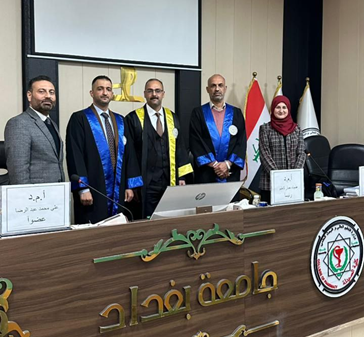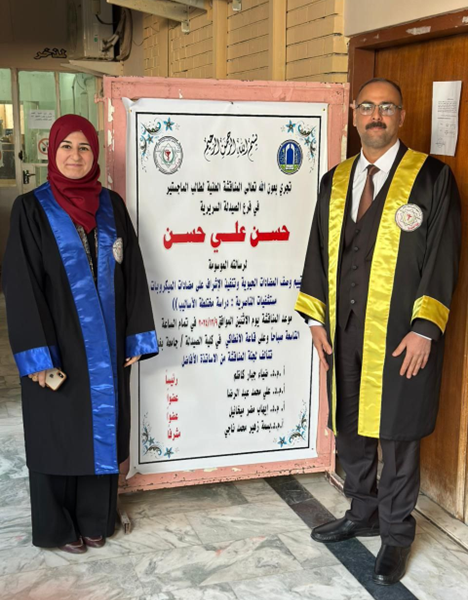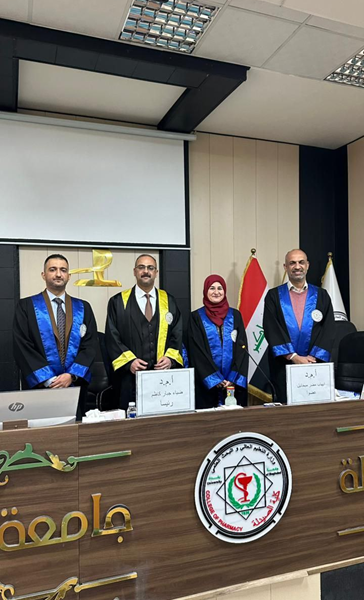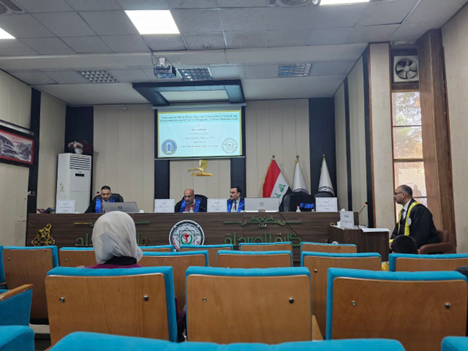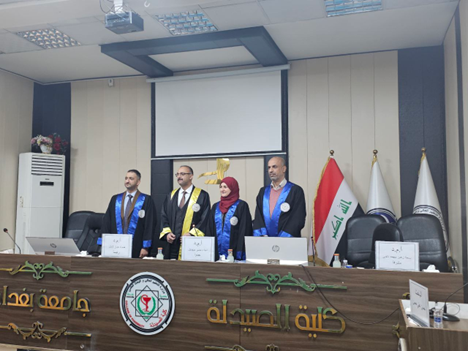The College of Pharmacy discussed the MSc thesis entitled “Assessing Antibiotic Prescribing and Antimicrobial Stewardship Implementation in Al-Nasiriya Hospitals: A Mixed-Methods Study” by the student Hasan Ali Hasan Shubbar and his supervisor, Assistant Professor Dr. Basma Zuheir Al-Metwali, in the Clinical Pharmacy Department. The study aimed to assess antimicrobial prescribing patterns, antimicrobial resistance patterns, and stewardship committees’ activities in Thi-Qar Governorate public hospitals. In addition, the current study aimed to explore the perspectives of pharmacists and physicians regarding the current and potential implementation of antimicrobial stewardship programs in Thi-Qar Governorate public hospitals.The study included a mixed-methods study conducted in nine public hospitals in the Thi-Qar Governorate. Phase 1: retrospective evaluation of antimicrobial prescribing patterns, antimicrobial resistance patterns, and stewardship committees’ activities. The data were collected retrospectively. Phase 2 explored the perspectives of pharmacists and physicians toward antimicrobial stewardship programs. This phase included face-to-face, semi-structured interviews with potential study participants. Almost all interviews were audio recorded, transcribed verbatim, and subjected to “thematic analysis.”. The Ministry of Health has issued legislation to regulate antimicrobial stewardship programs, and enhancing their practical implementation in health institutions is a promising step toward improving medical care. The study concluded that in Thi Qar Governorate, improper antimicrobial use is prevalent, with concerns about adherence to guidelines, misuse, and resistance. Challenges include laboratory-related issues like lack of culture and sensitivity testing, distrust of results, and physicians’ unfamiliarity with national guidelines. The availability of antimicrobials and affordability are prioritized over adherence to guidelines. Antimicrobial resistance is high, particularly among critical and high-priority pathogens. The study highlights the need for an antimicrobial stewardship program but also highlights challenges such as mismanagement of antibiotics, insufficient collaboration among healthcare workers, lack of infectious disease experts, and inadequate training and resources, leading to inactivity and fragmented work. The study recommended that implementing a comprehensive antimicrobial stewardship program in Thi Qar Governorate hospitals requires leadership commitment, professional experts, consistent monitoring, staff training, and financial resources. It also involves improving laboratory infrastructure, promoting collaboration among healthcare workers or professionals, conducting antimicrobial surveillance, increasing public awareness, and activating website guidelines publication to ensure adherence to guidelines and prevent improper use.


